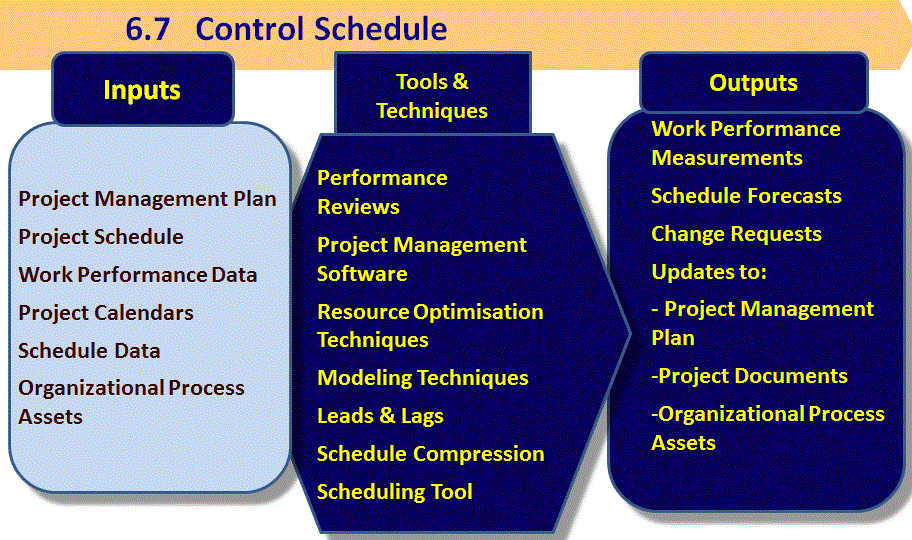Looking for Global training? Go to https://firebrand.training/en or stay on the current site (United Kingdom)
TERMS AND CONDITIONS
Firebrand Training grants you a personal, non-exclusive, non-transferable license to access and use the site. You may download or print material from the site only for your own personal, non-commercial use. Please read our full terms and conditions.
6.7 Control Schedule
"The process of monitoring the status of project activities to update project progress and manage changes to the schedule baseline to achieve the plan."
The definition shown above in italics is taken from the Glossary of the Project Management Institute, A Guide to the Project Management Body of Knowledge, (PMBOK® Guide) – Fifth Edition, Project Management Institute Inc., 2013

Project Management Institute, A Guide to the Project Management Body of Knowledge, (PMBOK® Guide) – Fifth Edition, Project Management Institute Inc., 2013 Figure 6-22 Page 185
Tools & Techniques
To find out where we are time wise:
- Performance reviews
- Variance analysis
- Project management software
To resolve scheduling issues & bring project back on track:
- Resource optimisation techniques
- Modelling techniques
- Leads and lags
- Schedule compression
- Scheduling tool
- EVM (Earned Value Management): to be discussed in 7.4 Control Costs process
Factors to consider
Where are we now in the schedule?
What are the factors that could cause change?
- How do I influence them to minimise/eliminate the need for change
What has changed and when?
- What are the implications?
- Did the implementation of approved changes go as intended?
Changes to the schedule and budget need to be raised to the CCB and approval gained
Tools and Techniques
Performance Reviews:
- Trend Analysis
- Critical Path
- Critical Chain
- Earned Value Management – identifying variances and efficiency measures
Resource Optimisation Techniques
Modelling Techniques
- Scenario analysis with risk monitoring to identify changes required
Leads and Lags
DISCLAIMER
Firebrand Training grants you a personal, non-exclusive, non-transferable license to access and use the site. You may download or print material from the site only for your own personal, non-commercial use. Read our full terms and conditions on https://firebrand.training/uk/learn/terms-and-conditions.
 Part of the BPP Education Group
Part of the BPP Education Group